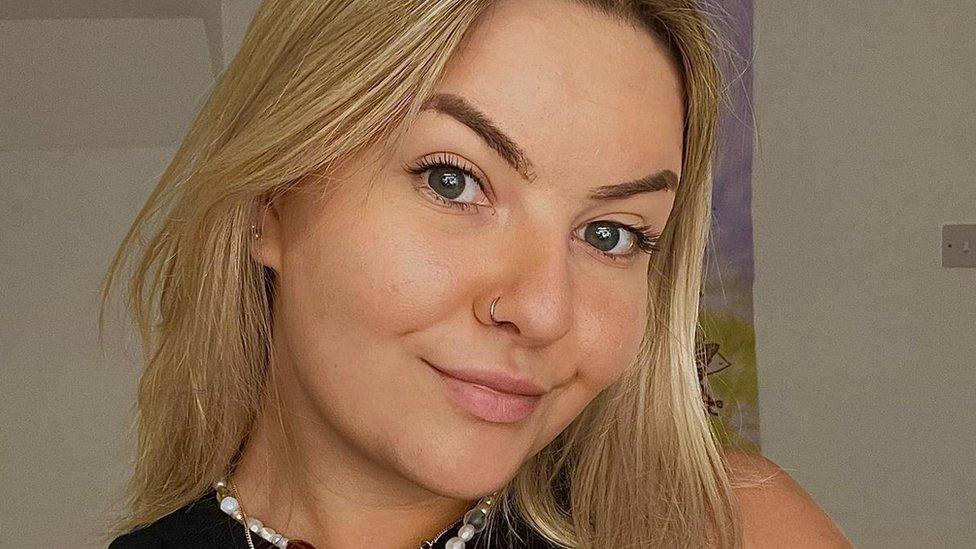Picket line nurses: 'Enough is enough'
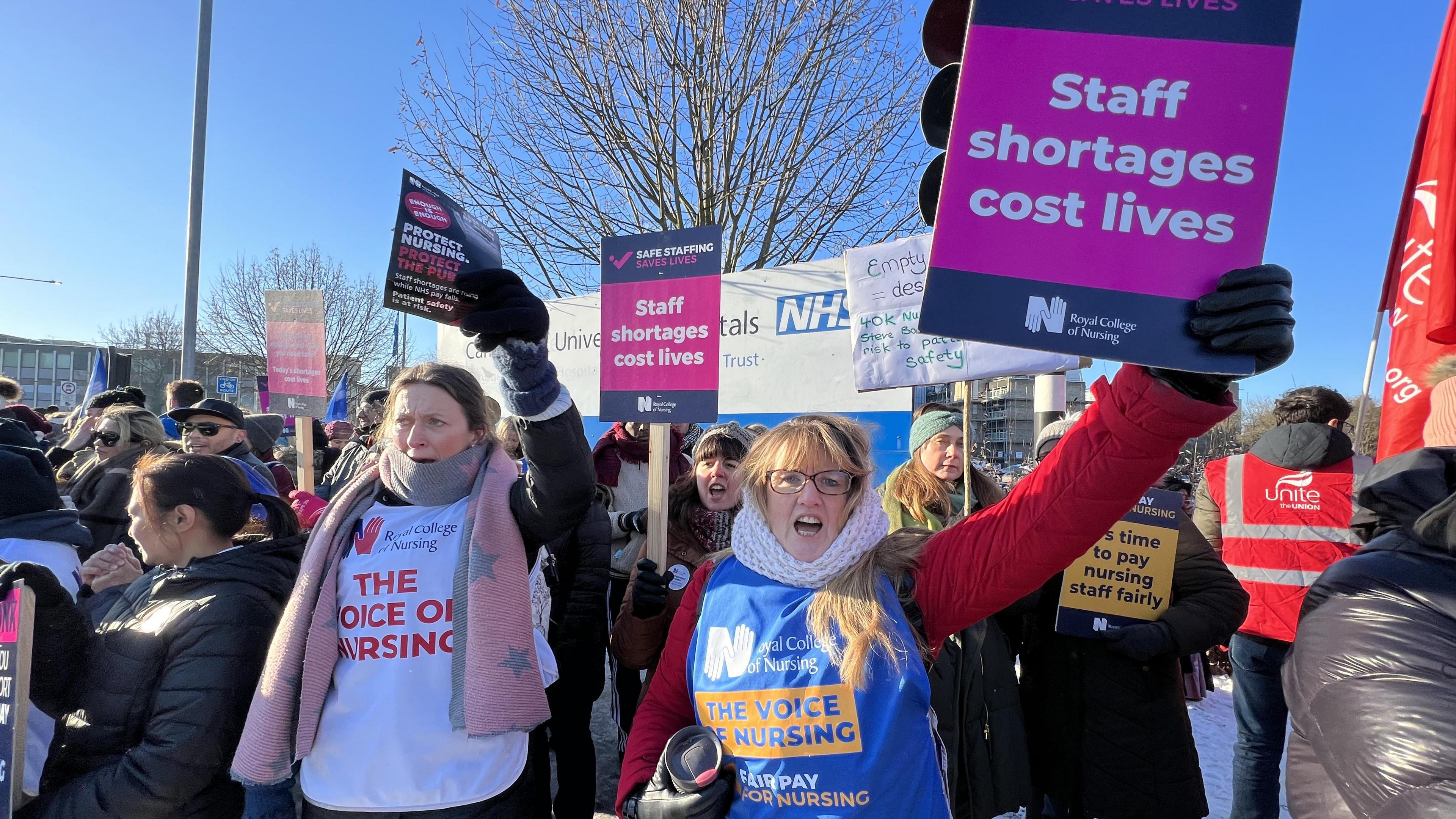
Nurses, including those at Addenbrooke's Hospital in Cambridge, are taking part in a national strike
- Published
Nurses in England, Wales and Northern Ireland have joined a nationwide strike in the largest action of its kind in NHS history.
"Life-preserving" and some urgent care are being provided, but routine surgery and other planned treatments are likely to be disrupted.
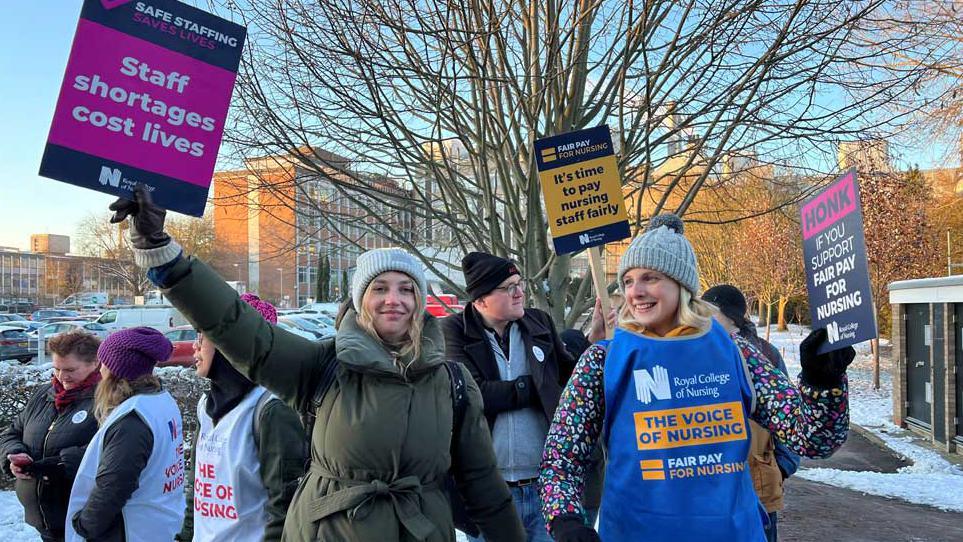
Striking nurses are concerned about pay and staff shortages
The Royal College of Nursing (RCN) said staff were given no choice after ministers refused to reopen pay talks.
The government said the RCN's 19% pay rise demand was unaffordable.
The BBC spoke to people on the picket lines.
'Enough is enough'
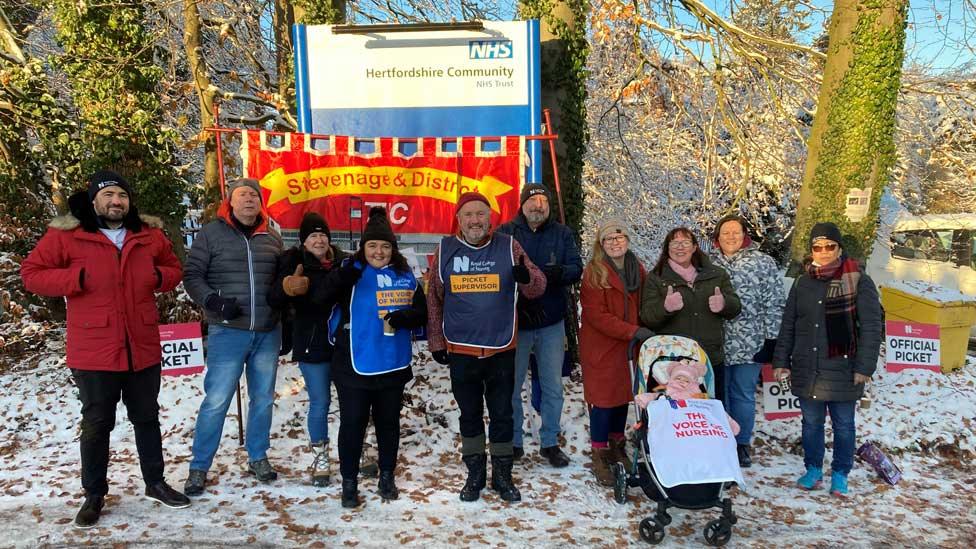
Senior nurse Tony Durcan joined colleagues on the picket line at the Queen Victoria Memorial Hospital in Welwyn
Tony Durcan is a senior nurse at Queen Victoria Memorial Hospital in Welwyn, part of the Hertfordshire Community NHS Trust, where those on strike are mainly community-based.
He says they are looking for a settlement that is "suitable, fair and reflective" around the "hard work and dedication" that nurses do every day.
"Nurses are being put under intolerable stresses and strains and that's why, for historical reasons, the RCN membership has made this decision that enough is enough," he says.
"We need to take this directly to government. They've forced our hand to take industrial action.
"We all come into this profession to make the difference, we have never thought that we would be in this position - that we would have to be walking away.
"We're just asking the local MPs and the ministers that the only way to resolve this is to get round the table, have meaningful conversations with our general secretary of the RCN and get back to doing what we love to do, which is to care passionately for our people."
He believes that the public will be behind their action for however long it goes on.
"Yes, its going to be difficult and yes it's going to be tough and yes, my members are patients as well so we know the impact and effect," he says.
"The difficulty is the alternative, if we do not stand up and if we do not promote the pay award and safe staffing, where is the future of the NHS?"
'Nurses do not feel safe'
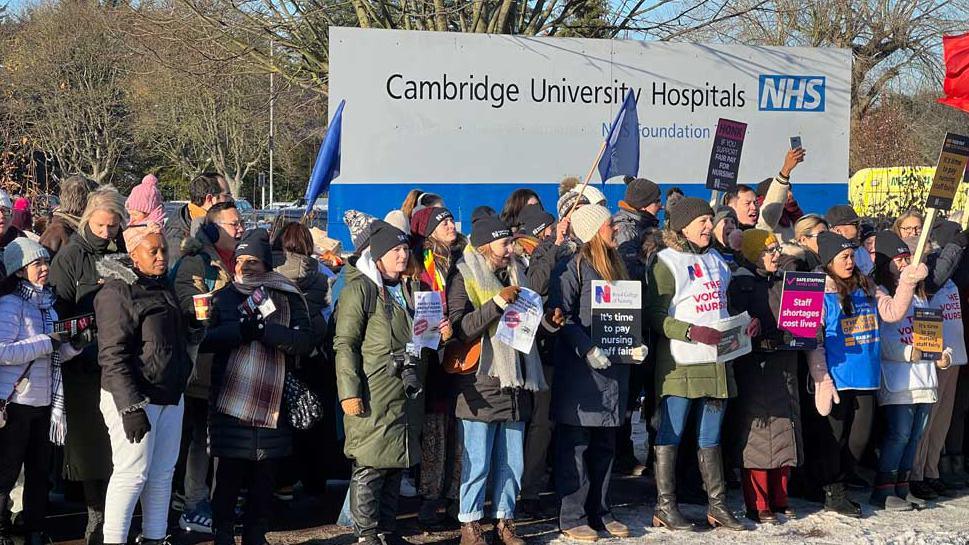
Nurses at Addenbrooke's Hospital in Cambridge say the workload has doubled since the pandemic
Practice development nurse Hugo Piresferreira, on the picket line outside Addenbrooke's Hospital in Cambridge, says the workload has "doubled" since the pandemic.
The 31-year-old says: "I think it's just an accumulation over the last few years and I think Covid just made us go into the breaking point.
"The workload has doubled, we're seeing double the numbers that we were seeing before Covid in terms of our wards.
"Patients are coming through a lot sicker.
"What we're not seeing is the staffing reflecting that."
He adds that a lot of people are leaving the profession because of money and "because they don't feel safe".
"They don't feel happy with what they do," he says.
"I think that's reason enough for us to take some action."
'It is time to protect nurses'
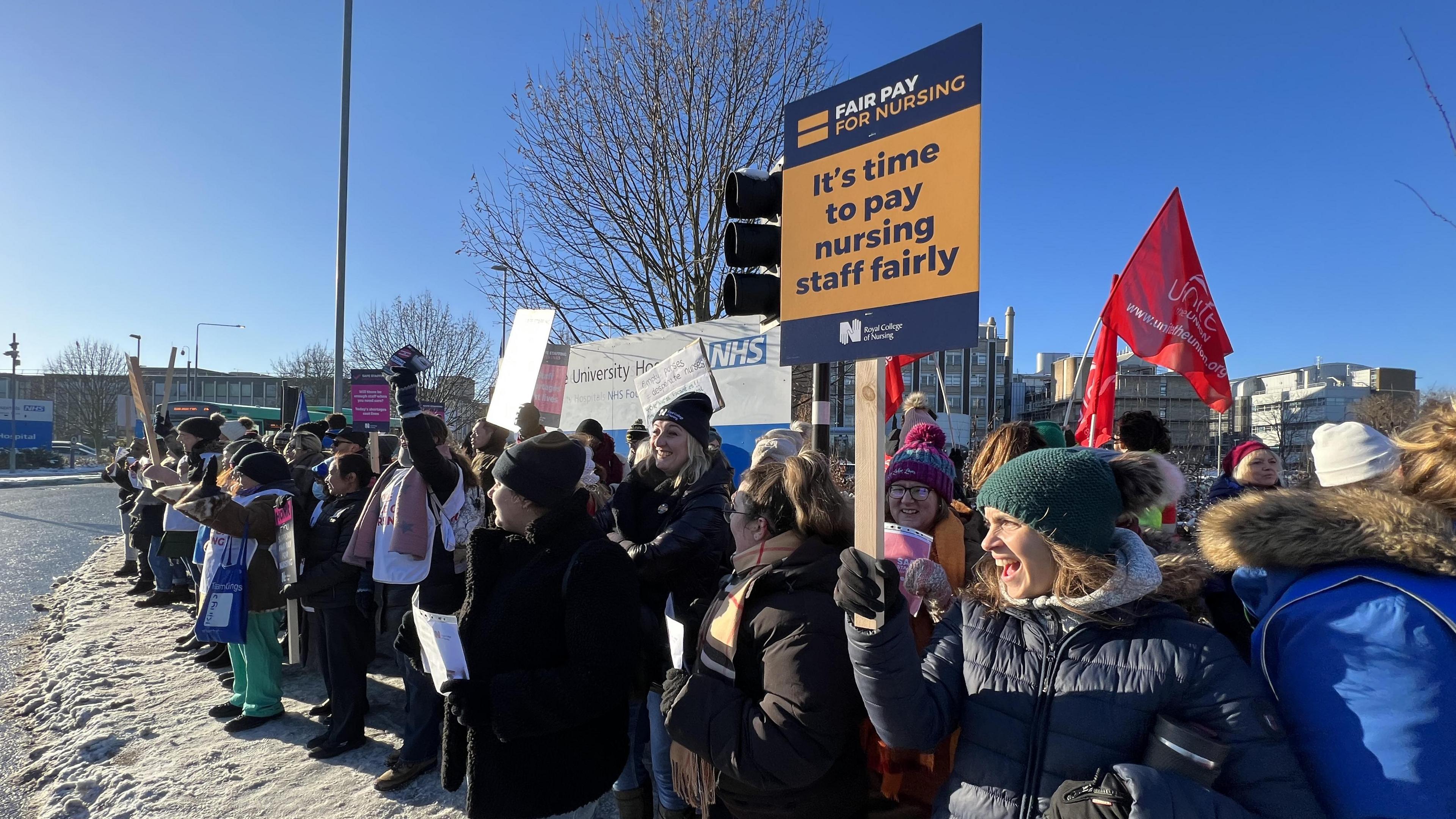
Health workers say they do not feel appreciated for what they did during the pandemic
Healthcare assistant Carina Cross-Fernandez, who works in paediatric recovery at Addenbrooke's, works full time and has a second job at a pub to "survive a whole month without struggling".
"When fuel prices went up I definitely think a lot of us were struggling to get to work let alone survive at home with food," she says.
Wards have been "absolutely manic, they've been like mayhem", she adds, but staff have managed to deliver safe care "under a lot of pressure".
The 22-year-old says nursing staff are "definitely not appreciated enough for the hard work we do, especially during the Covid time".
"I don't think we got paid enough for the amount of work we did, the amount of lives we saved," she says.
"Help protect us nurses. We protect you so it's your time to protect us."
The RCN balloted more than 300,000 nurses across individual NHS trusts and boards rather than in a single, national vote, which means some nurses were not entitled to take industrial action, because the turnout in their local area was too low.
In England, the first round of strikes are going ahead in 51 of 219 hospitals, mental health trusts and community services.
Find BBC News: East of England on Facebook, external, Instagram, external and Twitter, external. If you have a story idea for us, get in touch via eastofenglandnews@bbc.co.uk, external
Related topics
- Published15 December 2022
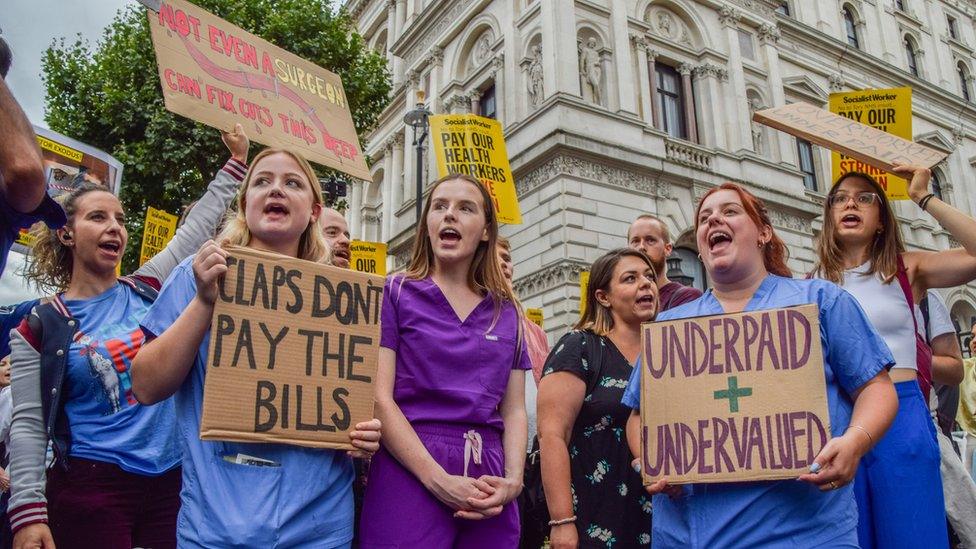
- Published2 May 2023
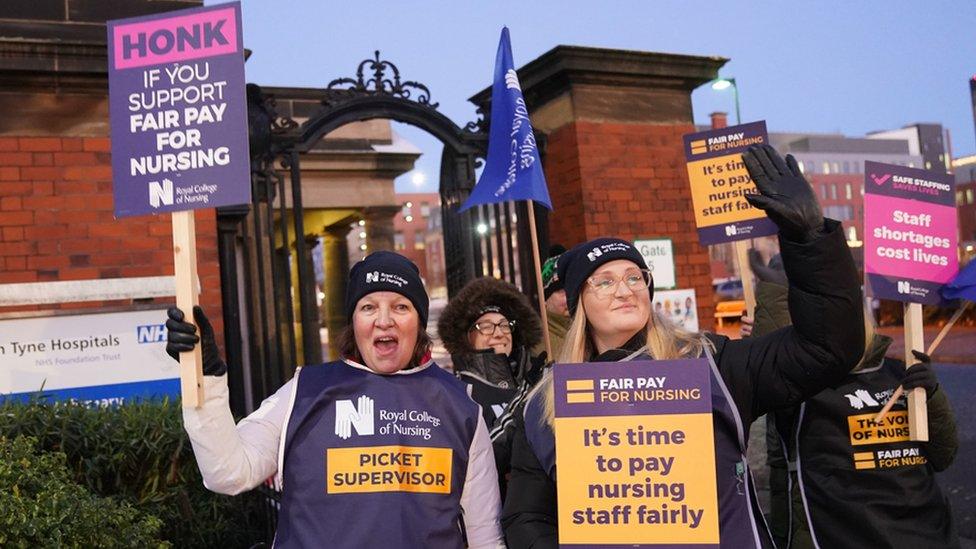
- Published6 December 2022
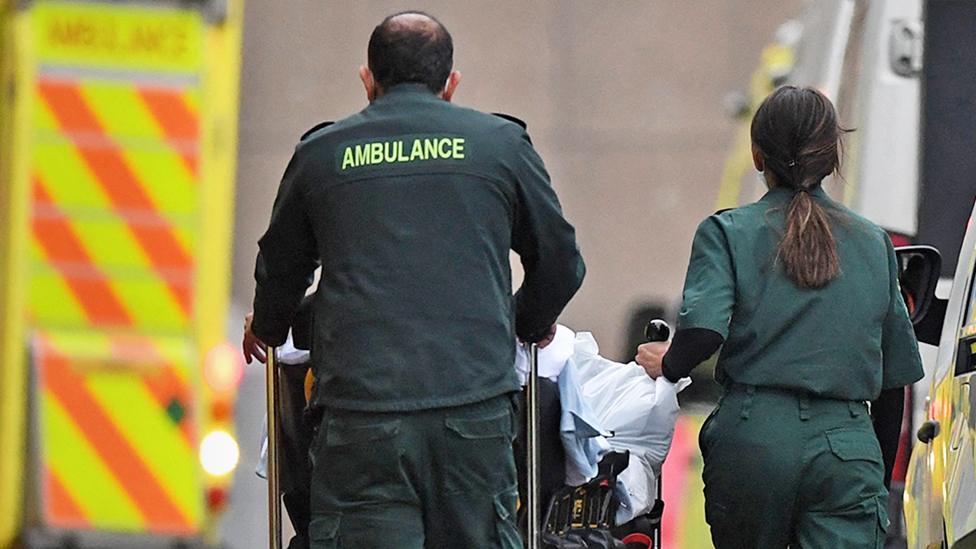
- Published9 November 2022
